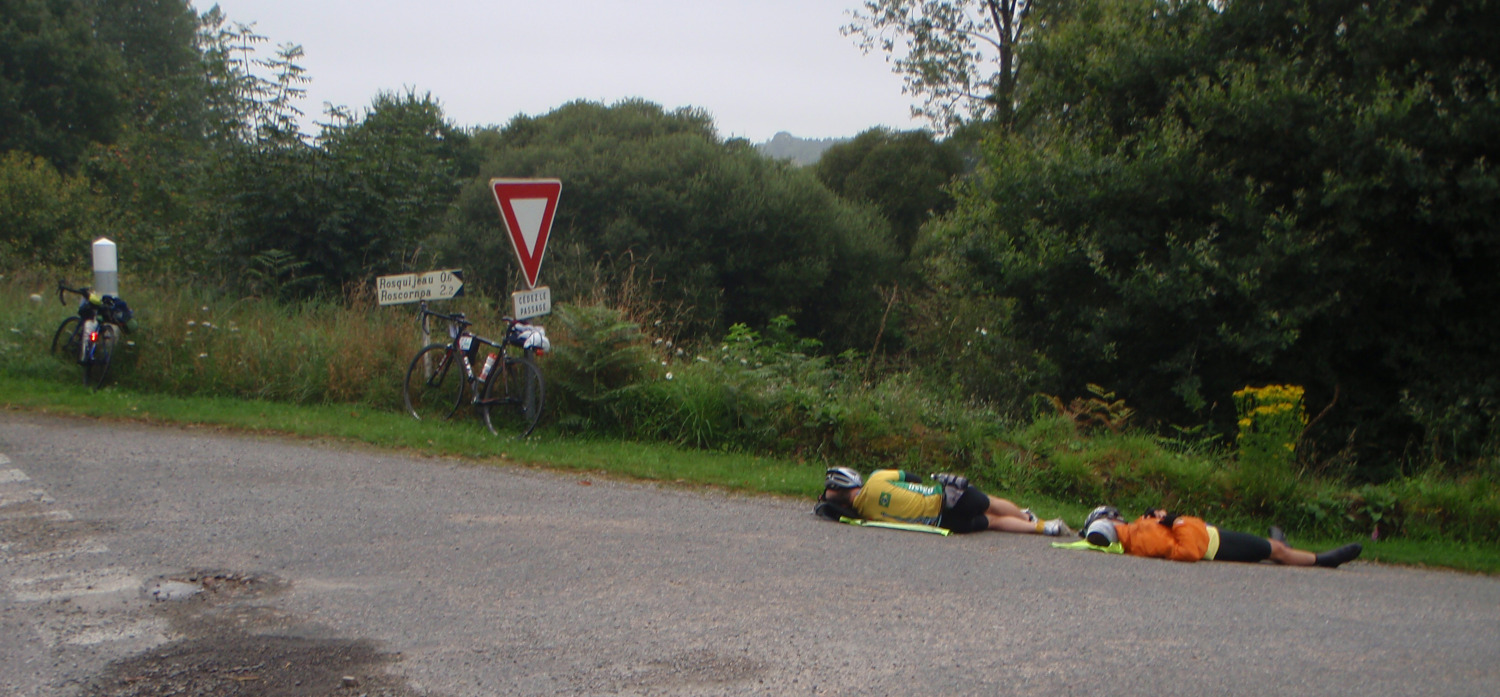Welcome to the adventure that is a 600. A 600 may be your first multi-day event so this is a step up from all previous events in that the challenge is to reach the overnight and then to get up again to keep on riding.
You know how shorter brevets work from riding the 200, 300, and 400K distances. You've learned about managing your resources, staying hydrated, staying fed (in the face of possible nausea), maintaining in a good core temperature (despite the vicissitudes of weather), how to set up solid, practical lighting and reflectivity, how to gather in groups for many hours of night riding, how to be efficient at controls, how to abuse caffeine, magic gum, and a cappella to battle sleep deprivation, and how to manage psychotic mood swings over a 24 hour stretch of crazy stresses.
But now the 600K has an overnight. What's that mean? How does that change things?
It doesn't change anything, really. The amenities at the overnight (paid for by your entry fee) are there for your convenience. Use them. Of course, you can think of the overnight as just another control. You can ride on through, only stopping at the overnight control long enough to have your card signed.
Nevertheless, most riders will want to take advantage of the conveniences afforded by the overnight control. You aren't required to sleep at the overnight, but most riders will want to sleep there. Also, there will be a bunch of hot food at the overnight, and a volunteer willing to serve it to you. Certainly eat something at the overnight.
Q: Can I book my own hotel and sleep earlier than 400K?
A: Yes, but sleeping a few hours at the 400K distance of a 600K is a success-oriented strategy. It also works for longer brevets. You should get used to riding 400K the first day. Many will finish the first 400K not long after midnight, which is a good time for most people to sleep. Laying up after only, say, 300K may have you trying to sleep before sunset, which doesn't really work for people. That is the general rule. In many other countries or regions, no support is provided at multi-day events and it is up to the rider to figure out where or how to sleep and it is left up to them to ensure they don't miss the cutoff time for controls. Even so, left to their own devices, riders still seem to choose 400K+ for their first sleep.
Q: But what if I'm REALLY sleepy?
A: Then STOP and sleep somewhere, dammit! Find a nice bench on a porch, or in a church, a table in a park, a PO lobby, or a heated public bathroom, or city council meeting, or curl up on some soft, dry grass, or do the tripod nod-off seated at a 24 hour diner or convenience store. Grab enough sleep so your head clears and you can continue riding safely. Then get a full sleep at the overnight. Obviously, don't sleep in places that are dangerous or will get you arrested (or worse). But randonneurs do develop a cultivated eye for finding safe spots for a stealth "ditch nap". It's easier than you'd think.
As with any brevet, controls have opening and closing times. You are responsible for ensuring you arrive at control after it opens and before it closes. Open times won't be an issue for most people. But everyone must reach the Chamounix overnight before the cutoff (which for the 600 is at 6:16 AM). This won't be a challenge for you; I predict you will arrive not too long past midnight. How much you sleep or rest at Chamounix is up to you, but if possible, try to get a couple meals, maybe a shower, and at least 3+ hours sleep. That takes about 4 hours if you are efficient.
There will be no timed controls on day-2 of the 600K, other than at the finish. This gives a lot of flexibility in sleep scheduling. You still need to complete 600K in under 40 hours, but the lack of timed controls day-2 means that you can sleep past the cutoff time of the overnight control without fear of missing the close time of the next control. You have a whole 200K to make up that lost time. If you can ride a 200K in 10 hours (when tired) then that means you have 3.5 extra hours to play with. Last time we ran the TK 200K route, the slowest rider took just over 12 hours. So I expect that everyone will have at least one bonus hour past the overnight close time.
Tell the staff volunteer at the overnight what your sleep plans are. That volunteer will sanity check your plans and help you get back on the road safely and at a time best to achieve your goals.

No comments:
Post a Comment